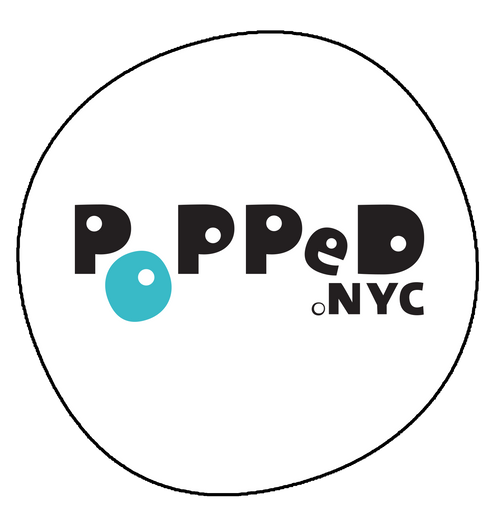In the rapidly evolving world of CBD products, terminology can quickly become confusing. You've likely heard the terms "broad spectrum" and "full spectrum" thrown around, but what do they actually mean? These phrases are not just marketing jargon; they represent different compositions of CBD that can have varying effects and benefits. Knowing the distinction between these two types of CBD is critical for anyone looking to incorporate this natural compound into their wellness routine.
Broad spectrum and full spectrum CBD are both derived from the hemp plant, but they differ significantly in their cannabinoid content and potential effects. While full spectrum CBD includes all of the plant’s natural compounds, including trace amounts of THC, broad spectrum CBD has the THC completely removed. Which option is the best for you? Keep reading to find a thorough comparison that will guide you through making the most informed decision possible.
Comparing Full-Spectrum and Broad-Spectrum CBD
Full-spectrum CBD includes a variety of components from the cannabis plant, such as minor quantities of tetrahydrocannabinol (THC). According to federal regulations, legally available full-spectrum products must contain a THC concentration of less than 0.3 percent. In states where cannabis is fully legal, you may also find full-spectrum products with higher THC levels.
Broad-spectrum CBD, on the other hand, does not contain THC. It retains other components of the cannabis plant, so it won't be 100 percent CBD. Think of broad-spectrum as a middle ground between full-spectrum and CBD isolate.
CBD isolate is the pure form of CBD, containing no other compounds found in cannabis, offering an option for those who want to avoid THC and other cannabis compounds entirely.
Related Link: CBD for Moms: A Natural Solution for Stress Relief

Assessing the Benefits and Challenges of Full-Spectrum CBD
Full-spectrum CBD is highly regarded for its potential to harness the 'entourage effect.' This concept suggests that when the various components of the cannabis plant—including phytocannabinoids (such as CBD and THC), flavonoids, and terpenes—are consumed together, they may deliver more substantial therapeutic benefits than when taken separately. Notable research, including a 2011 study, supports the idea that phytocannabinoids and terpenes may have a positive impact on pain relief, inflammation reduction, and anxiety management. Nevertheless, full-spectrum CBD also presents certain challenges. A key concern is the potential for users to experience psychoactive effects due to the THC content, an issue that may escalate with higher doses of more potent products. Moreover, the inclusion of THC in full-spectrum CBD products increases the likelihood of receiving a positive result in drug screenings for cannabis.
The Pros and Cons of Broad-Spectrum CBD Explored
Broad-spectrum CBD offers consumers the opportunity to enjoy the benefits of CBD and other cannabis compounds, while avoiding the psychoactive effects associated with THC. This THC-free option makes broad-spectrum CBD appealing for those requiring regular drug screenings or individuals sensitive to THC. However, the absence of THC in broad-spectrum products might limit the full therapeutic potential of these products, as some experts believe that THC plays a crucial role in the 'entourage effect.' Nonetheless, broad-spectrum CBD continues to deliver a variety of other cannabinoids, terpenes, and flavonoids, which independently may provide a host of health benefits, including anti-inflammatory properties and potential stress relief.
Related Link: Best Time of Day to Take CBD Oil
Navigating Your CBD Options
Choosing the most suitable CBD product is a personal decision that should align with your comfort regarding THC intake and overall health objectives. For those prioritizing the health advantages of CBD without the psychoactive elements of THC, broad-spectrum products emerge as a leading choice, providing extensive cannabis plant benefits without the legal or psychoactive concerns of THC. Conversely, if you are comfortable with minimal THC content and are seeking to potentially enhance the effects of your CBD, full-spectrum products may be more fitting. For those looking for a pure CBD experience, without additional cannabis compounds, CBD isolate stands as a viable, straightforward choice.
The Current State of CBD Research
While clinical research on CBD is in its nascent stages, accumulating data increasingly points to its potential therapeutic benefits across an array of health domains, including pain management, mental health (anxiety and depression), sleep quality improvement, and epilepsy treatment. For instance, existing research has highlighted CBD's anti-inflammatory properties, which may be a significant asset for those managing chronic pain. Despite the promising trends, human studies on CBD for pain management remain limited but are encouraging overall. Notably, the U.S. FDA has endorsed Epidiolex, a CBD-infused medication, for the treatment of two severe forms of epilepsy (Lennox-Gastaut syndrome and Dravet syndrome), setting a groundbreaking precedent for CBD as a legitimate medical treatment.
Are you looking to buy CBD products from a trusted company? Visit Popped.NYC today.

Tailoring CBD to Your Needs: Full-Spectrum or Broad-Spectrum?
Both full-spectrum and broad-spectrum CBD products present their own sets of advantages and possible downsides. Full-spectrum CBD, characterized by its inclusion of trace amounts of THC and a rich variety of other cannabis compounds, is believed to promote a potent 'entourage effect,' wherein the diverse components of the cannabis plant collaboratively boost the overall therapeutic benefits. In contrast, broad-spectrum CBD offers a path for consumers seeking the potential boons of CBD and other cannabinoids, minus the effects tied to THC.
Choosing between full-spectrum and broad-spectrum CBD boils down to individual needs and preferences. If THC's presence is a concern, broad-spectrum products are the perfect solution. For those looking to potentially maximize the benefits of CBD with the entourage effect, full-spectrum products are an excellent option. Regardless of your choice, always prioritize quality. Consider exploring Popped.NYC for a range of all-natural CBD products, diligently crafted to meet the highest standards.
Related Link: Mixing CBD Flower with Weed: What You Need to Know

